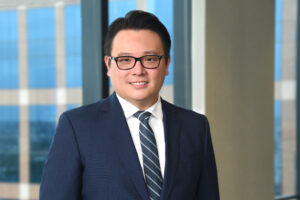WISCONSIN ALUMNI RESEARCH FOUNDATION v. APPLE INC
Before Prost, Taranto, and Chen. Appeal from the United States District Court for the Western District of Wisconsin.
Summary: Literal infringement and infringement under the doctrine of equivalents are treated as the same issue for issue preclusion.
Wisconsin Alumni Research Foundation (“WARF”) appealed final judgments in two related litigations against Apple. In the first litigation (“WARF I”), WARF alleged that Apple’s A7 and A8 processors infringe WARF’s ’752 patent. In the second litigation (“WARF II”), WARF alleged that Apple’s A9 and A10 processors infringed the same patent. In WARF I, a jury found that Apple literally infringed WARF’s patent. Apple appealed the jury verdict and the Federal Circuit reversed. WARF II was stayed pending the outcome of the WARF I appeal. WARF then requested a new trial in WARF I on infringement under the doctrine of equivalents. WARF also sought to continue in WARF II under a doctrine of equivalents theory. The district court denied both requests. In WARF I, the district court denied WARF’s motion for a new trial under a doctrine of equivalents theory because WARF had waived that theory. In WARF II, the district court found that the noninfringement decision in WARF I precluded a finding that the A9 and A10 processors infringed the ’752 patent. WARF appealed both decisions.
The Federal Circuit first affirmed that WARF waived its doctrine-of-equivalents theory in WARF I in part because WARF had affirmatively abandoned that theory for strategic reasons. Next, the Federal Circuit affirmed that WARF’s doctrine of equivalents theory was barred by the earlier finding of no literal infringement. The Federal Circuit held that the A7/A8 processors in WARF I were “essentially the same” as the A9/A10 processors in WARF II and that literal infringement and the doctrine of equivalents are the same “issue” for the purpose of issue preclusion—they share the same statutory basis, were historically treated as the same issue, and the evidence and pretrial preparation would be the same under both theories. Finally, the Federal Circuit held that WARF II was also barred by the Kessler doctrine, which bars infringement claims against essentially the same products after an earlier finding of noninfringement.
Editor: Sean Murray

